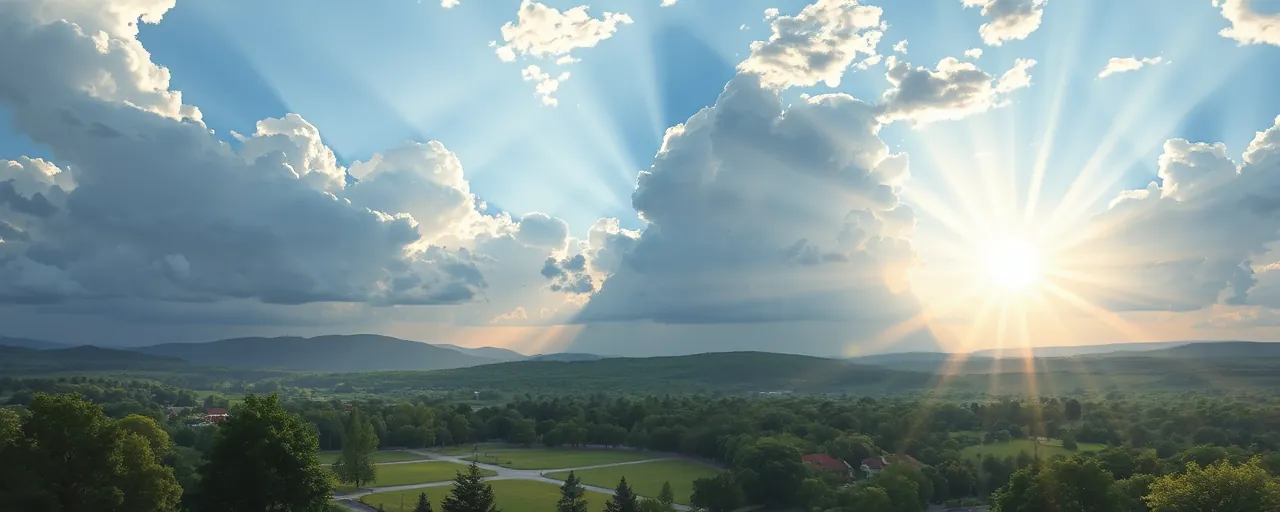A Call to Celebrate America’s Soul
National parks are more than scenic vistas or hiking trails; they are the beating heart of America’s story. In his 2025 National Park Week Proclamation, President Donald J. Trump delivers a stirring reminder of this truth, urging citizens to embrace the parks as living testaments to the nation’s founding courage and enduring greatness. From the rolling fields of Minute Man National Historical Park, where patriots fired the first shots of the American Revolution, to the towering peaks of Mount McKinley, restored to its rightful name, these lands embody the spirit of a people who dared to dream big and fight for liberty.
Trump’s vision is clear: national parks must inspire pride, unity, and reverence for the heroes who shaped the nation. His proclamation, issued on April 23, 2025, marks National Park Week with a bold celebration of the 250th anniversary of the Battles of Lexington and Concord. It’s a moment to reflect on the sacrifices that birthed a free nation, a call to honor the past while safeguarding these treasures for future generations. Yet, this vision faces resistance from those who seek to rewrite history, downplaying the triumphs that define America’s identity.
The proclamation isn’t just rhetoric; it’s a roadmap for action. Trump’s administration has taken concrete steps to restore the dignity of park names, like Mount McKinley, stripped of its historical weight by bureaucratic overreach. The creation of the National Garden of American Heroes, a monument to 250 patriots, underscores a commitment to celebrating figures who embody courage and devotion to country. These moves signal a rejection of narratives that diminish America’s achievements in favor of grievance-driven revisionism.
For everyday Americans, curious about the real-world stakes, this matters. National parks draw over 331 million visitors annually, offering a shared space to reconnect with the nation’s roots. They’re not abstract; they’re tangible links to the battles, ideals, and landscapes that forged the United States. Trump’s focus on patriotism ensures these sites remain places of inspiration, not division.
Reclaiming History From the Revisionists
The fight over national parks is a microcosm of a larger cultural battle. Some historians and advocacy groups push for interpretive programs that dwell on America’s flaws, emphasizing land dispossession or racial exclusion over the nation’s triumphs. They argue for narratives that highlight the displacement of Indigenous peoples or the segregation of early park facilities, often at the expense of the unifying stories that bind Americans together. While acknowledging historical complexities is necessary, tilting the balance toward shame risks alienating citizens and eroding national pride.
Trump’s proclamation counters this trend by doubling down on what makes America exceptional. The emphasis on events like Lexington and Concord isn’t about ignoring the past’s darker chapters; it’s about prioritizing the courage and vision that overcame them. The National Park Service, under pressure to adopt more inclusive storytelling, has at times veered into interpretations that feel like indictments of the nation’s founding. Trump’s approach redirects the focus to shared heritage, ensuring parks remain places where families can celebrate their country, not question its legitimacy.
Historical data backs this perspective. Since Yellowstone’s establishment in 1872 as the world’s first national park, these sites have been designated to preserve moments of national significance, from battlefields to architectural marvels. Over 400 park sites now exist, drawing visitors who seek connection with America’s past. Polls show most Americans, including a majority of conservatives, want parks to emphasize unity and pride, not division. By restoring traditional names and championing heroes, Trump aligns with this sentiment, rejecting what many see as ideological overreach in park management.
Stewardship as a Sacred Duty
Preserving national parks is not just a policy issue; it’s a moral obligation. Conservatives have long championed stewardship, tracing back to Theodore Roosevelt’s vision of protecting landscapes for posterity. Trump’s proclamation echoes this, pledging to cherish parks for future generations. Yet, the parks face unprecedented threats, from climate change to a $23 billion maintenance backlog, exacerbated by recent budget cuts that slashed 1,000 NPS jobs and triggered a hiring freeze.
Climate change poses a particularly urgent challenge. Parks are warming at twice the national rate, with melting glaciers in Glacier Bay, wildfires ravaging Yosemite’s sequoias, and floods reshaping Yellowstone’s rivers. These aren’t abstract projections; they’re realities that demand action. While some advocate for sweeping environmental regulations, conservatives argue for practical, targeted solutions: upgrading infrastructure, restoring ecosystems, and leveraging private partnerships. Trump’s focus on American greatness includes ensuring these natural wonders endure, not as battlegrounds for climate debates but as shared treasures.
The maintenance crisis is equally pressing. Aging roads, crumbling visitor centers, and trail closures undermine the visitor experience and threaten safety. The 2020 Great American Outdoors Act provided a $6.65 billion boost, but it’s a drop in the bucket. Congress must prioritize funding to reverse the decline, ensuring parks remain accessible to the 331 million annual visitors who sustain their economic and cultural value. Trump’s leadership can galvanize this effort, framing park preservation as a patriotic duty, not a partisan talking point.
A Vision for the Future
Trump’s 2025 proclamation sets a tone of optimism and resolve. By celebrating the parks as symbols of American greatness, it invites citizens to engage with their heritage in a way that transcends political divides. The National Garden of American Heroes, the restoration of historic names, and the focus on education through the White House Task Force on Celebrating America’s 250th Birthday are not just gestures; they’re investments in a unified national identity. For readers new to these debates, the takeaway is simple: national parks are yours, and they’re worth fighting for.
The alternative—ceding control to those who prioritize division over unity—risks eroding the parks’ role as common ground. Americans deserve parks that inspire, educate, and endure. Trump’s vision, rooted in patriotism and stewardship, offers a path forward. It’s a call to protect these lands, honor their history, and ensure they remain breathtaking for centuries to come.
